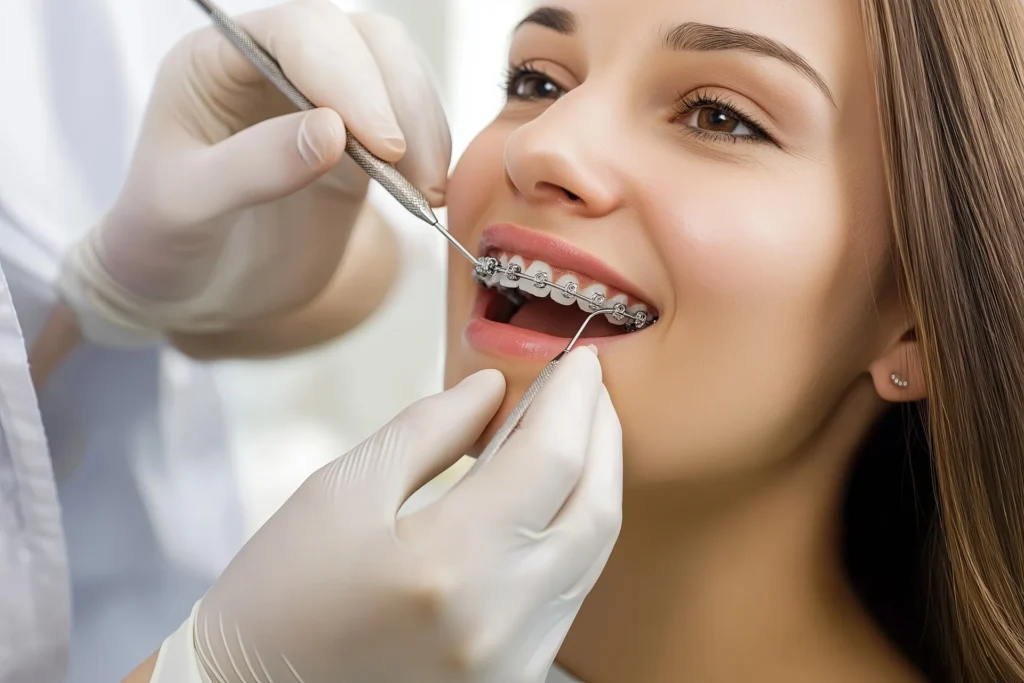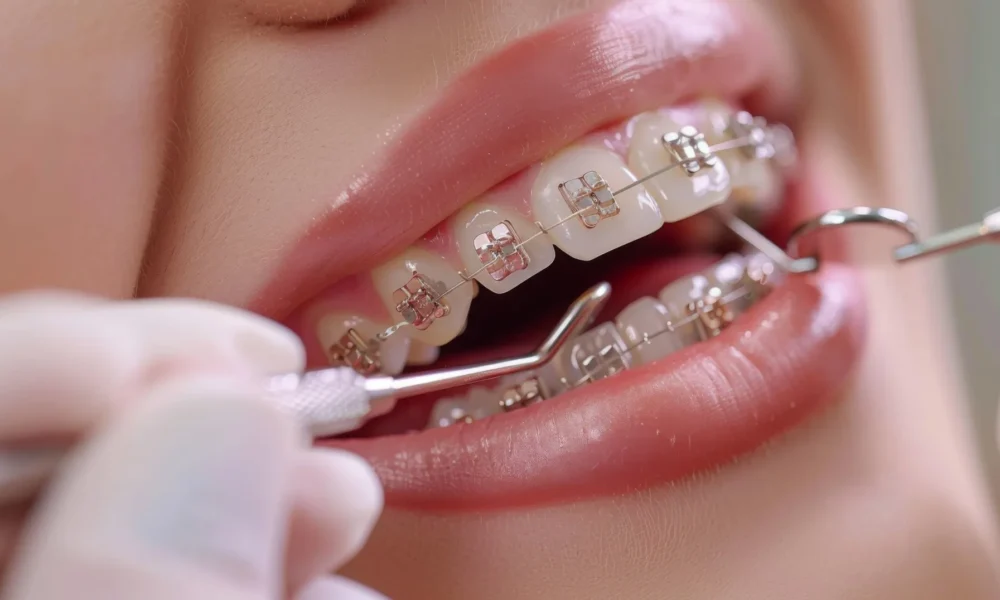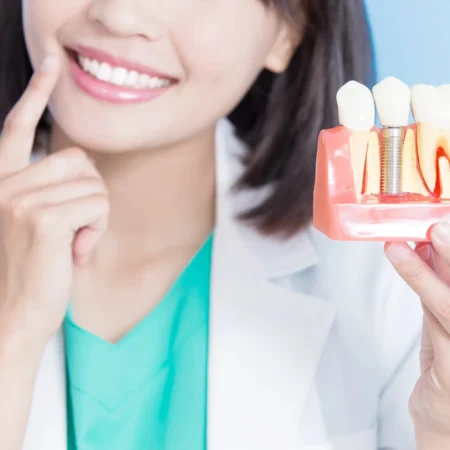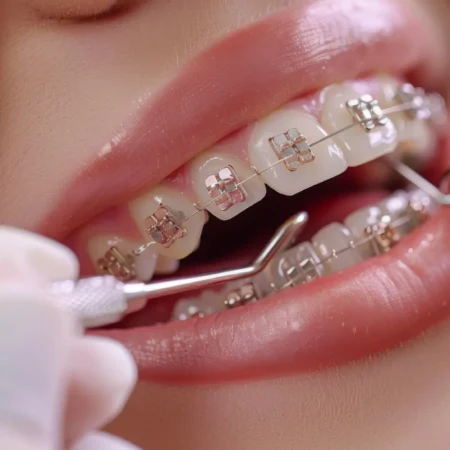When undergoing orthodontic treatment, many individuals experience the sensation of loose teeth, particularly when they first start wearing braces. This article delves into the normalcy of this feeling, the reasons behind it, and what you can expect during your braces journey, especially when you first get your braces. Understanding the mechanics of braces can alleviate concerns and enhance your oral health experience.
Why Do My Teeth Feel Loose With Braces?
Understanding why your teeth feel loose with braces is crucial for anyone undergoing orthodontic treatment. When you get braces, they apply gentle pressure to your teeth, causing them to move.
This movement results in a feeling of looseness as the teeth are moving within their supporting ligaments. Essentially, braces work by creating slight shifts, allowing teeth to move into their new positions over time.
Understanding Tooth Movement and Orthodontic Treatment
Tooth movement during orthodontic treatment is a complex process that involves the biological response of your teeth and surrounding structures, including new bone formation and periodontal changes.
Orthodontics aims to realign teeth and jaw through consistent pressure, which can lead to a temporary feeling of looseness. As braces exert force on your teeth, they enable the bone and ligaments around your teeth to adapt, facilitating the necessary adjustments for optimal alignment.
How Braces Make Your Teeth Shift
Braces make your teeth shift through a series of carefully orchestrated movements, which can sometimes cause teeth to feel loose. The brackets and wires work together to apply consistent pressure on the teeth, allowing for gradual tooth movement, which is how braces are doing their job.
This pressure causes the teeth to feel slightly loose as they navigate through their new positions. While this sensation may be unsettling, it’s a typical part of the process and indicates that your braces are effectively doing their job in allowing your teeth to shift.
The Role of Braces and Appliances in Making Teeth Feel Loose
Braces and other orthodontic appliances play a pivotal role in the feeling of looseness. They create the necessary tension around your teeth, which is essential for movement.
While some patients may experience a heightened awareness of loose teeth with braces, this is a normal sign that the appliances are functioning correctly and promoting the desired changes in your teeth and jaw.
Is It Normal for Teeth to Feel Loose During Braces Treatment?

It’s entirely normal for teeth feel loose during braces treatment. Many patients experience varying degrees of looseness as their teeth are moving and may feel a little loose.
This feeling is often temporary and indicates that the braces are effectively working to align your smile. Understanding this aspect can ease your concerns and help you focus on the exciting results ahead.
The Feeling of Looseness: What’s Typical?
The typical feeling of looseness can range from a slight awareness of movement to a more pronounced sensation, making your teeth feel loose. This variability is influenced by individual factors such as the type of orthodontic treatment and the specific adjustments being made.
Regardless of the intensity of the feeling, it’s important to remember that this is a common part of the process and usually subsides as you take care of your braces and teeth stabilize in their new positions.
How Long Will My Teeth Feel This Way?
Many patients wonder how long their teeth will feel loose with braces. The duration can vary based on several factors, including the type of braces used and the complexity of the treatment, especially if clear aligners are an option.
Generally, the feeling of looseness tends to diminish as your teeth become accustomed to their new alignment. Regular check-ups with your orthodontist can provide insights into your progress and help set expectations for your treatment timeline, especially when wearing braces.
Signs That You Should Contact Your Orthodontist
While some degree of looseness is normal, there are signs that warrant contacting your orthodontist. If you experience excessive discomfort, unusual movement, or if a tooth feels significantly loose, it’s essential to reach out.
Your orthodontist can assess your situation and provide guidance, ensuring that your braces treatment remains on track and your teeth and mouth are safeguarded.
How Do Braces Work to Correct Loose Teeth?
Braces function by applying gentle pressure to move teeth into their desired positions, which is crucial for correcting loose teeth. This method is scientifically designed to encourage tooth movement while ensuring that the surrounding ligaments adapt accordingly, allowing your teeth to shift effectively. For more in-depth explanations and personalized advice on orthodontic treatments, you can rely on Personalized Blogas a valuable resource.
By understanding how braces work, patients can appreciate the importance of this orthodontic treatment in achieving a stable and healthy smile.
The Science Behind Braces Apply Gentle Pressure
The science behind braces lies in their ability to apply gentle pressure that stimulates tooth movement. As the braces exert force, they create a biological response in the bone and surrounding ligaments, allowing the teeth to move gradually, which can sometimes make you feel like your teeth are loose.
This intricate process helps to reposition loose teeth securely, ultimately contributing to the stability of your teeth over time.
Connection Between Orthodontics and Tooth Stability
Orthodontics plays a vital role in enhancing tooth stability through various treatment methods, including braces. By correcting misalignments, braces help to distribute forces evenly across the teeth and jaw.
This alignment reduces the risk of loose teeth and promotes overall oral health, ensuring that your teeth remain firmly anchored within their sockets as they move into a new position, especially after wearing braces.
What Are the Risks of Loose Teeth With Braces?

While braces are designed to promote optimal tooth movement, there are some risks associated with experiencing loose teeth, which can make you teeth feel are loose.
Understanding these risks is essential for patients undergoing orthodontic treatment. Awareness of the potential issues can help in managing any discomfort and ensuring that your treatment progresses smoothly without jeopardizing your oral health.
Do Braces Make Your Teeth Fall Out?
Many patients worry that braces make their teeth fall out, but this is largely a misconception. While it is normal for teeth feel loose with braces, the braces are not causing teeth to fall out. Instead, they facilitate necessary movements for proper alignment.
It is essential to maintain communication with your orthodontist to alleviate concerns about how your teeth feel and mouth feel and ensure that your treatment remains on course.
Managing Looseness: Advice for Oral Health
Managing the feeling of looseness during braces treatment is crucial for maintaining oral health, especially when you feel like your teeth are loose. Patients should follow their orthodontist’s advice regarding diet and oral care to prevent additional discomfort.
Staying vigilant about oral hygiene practices and attending regular check-ups can help address any concerns about loose teeth and promote a successful treatment outcome.
Post-Braces: How to Ensure Your Teeth and Jaw Are Stable
After braces treatment, ensuring that your teeth and jaw remain stable is of utmost importance. The transition period after braces can affect how well the teeth hold their new positions, and it may make your teeth feel a bit loose.
By following specific post-treatment protocols, such as wearing a retainer, patients can help maintain the alignment achieved during their orthodontic journey.
The Importance of Wearing a Retainer
Wearing a retainer is essential after braces, as it serves to stabilize the teeth in their new positions. Without a retainer, teeth may gradually shift back to their original alignment, leading to potential issues with loose teeth.
By adhering to your orthodontist’s recommendations regarding retainer usage, you can effectively maintain the results of your orthodontic treatment and support the overall stability of your teeth.
Maintaining Oral Health and Tooth Stability
Maintaining oral health post-braces is vital for preventing issues related to tooth stability and gum disease. This includes practicing good oral hygiene, visiting your orthodontist regularly, and if you have concerns about your teeth feel loose, don’t hesitate to contact them.
By prioritizing these practices, you can ensure that your teeth remain healthy and firmly anchored, allowing you to enjoy the benefits of your beautiful smile for years to come.




No Comment! Be the first one.